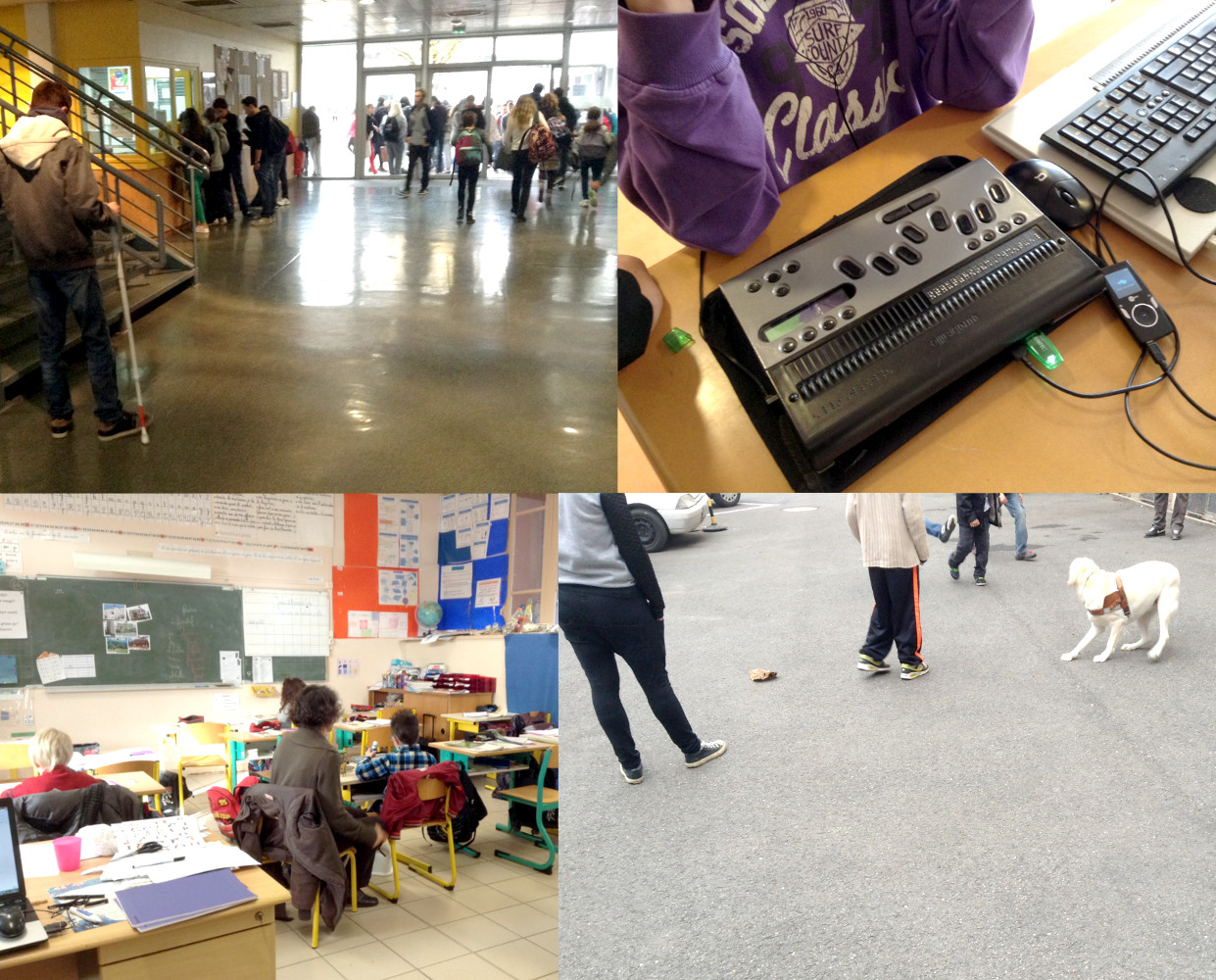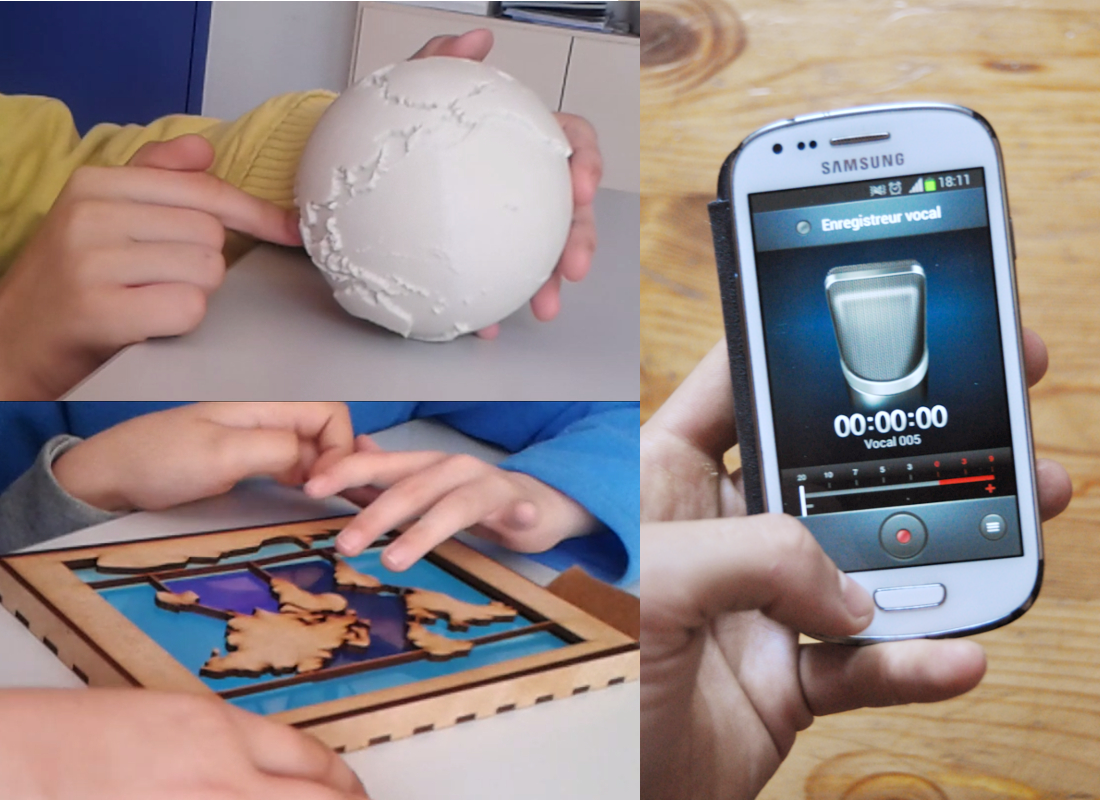Between November 2014 and June 2016 (with some more visits and interviews after that date), I conducted a field study in a french specialized institute for children living with visual impairments. I aimed at a better understanding of learning and teaching practices for children living with visual impairments, which could improve the design process in the ANR project Accessimap. I also wanted to understand these children's experiences of school. Besides participant observations and interviews, I designed several probes during the course of those two years.

The probes
To gather feedback on early research questions, I designed several probes.

The tactile globe helped us investigating children's tactile perception of the material, but also larger implications for caretakers' practices. It also helped crafting design guidelines for current and future artifacts. As for the tactile and audio wood-cut map, it provided various audio cues: ocean sounds, songs... We aimed at fostering children creativity and customization of educative technologies. They reacted very positively to that probe, proposing modifications, explaining about their learning preferences, telling stories related to the points of interest... Finally, the audio recording app aimed at providing them with the direct means to produce their own content. They used it to engage in social games, but also for conveying various informations about space (such as the volume of a room, based on how their voices echoed). This was prolongated by a later project on wearables for geography field-trips.
Main Results
This field-study led to design recommendations that were summarized in the article about MapSense, a multi-sensory, DIY, interactive map. Some ideas are further developed in our CHI 2018 paper. We also accompanied and observed how specialized carers develop "techno-pedagogical" skills, and to involve them in the design of learning technologies. This is developed in our ALTER 2017 paper. Sociological insights on children's experiences of school are to be published.